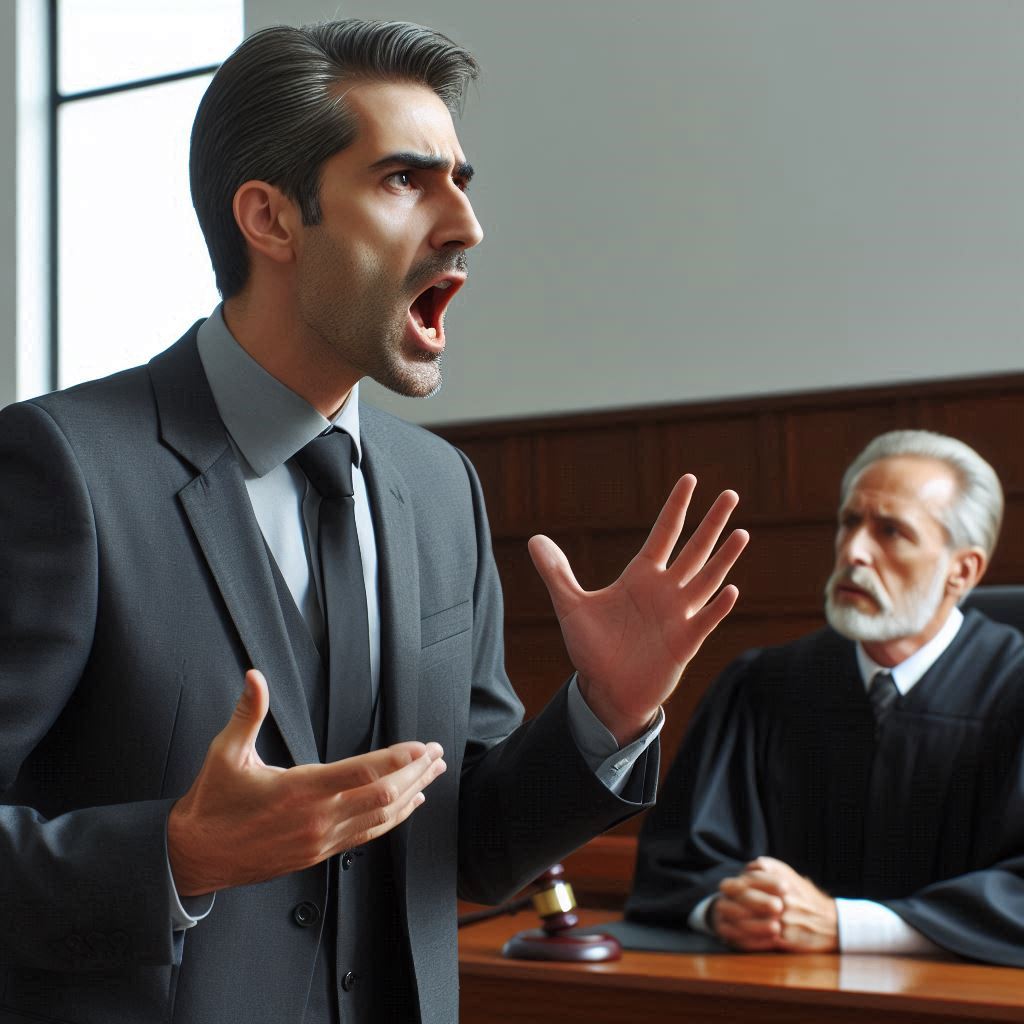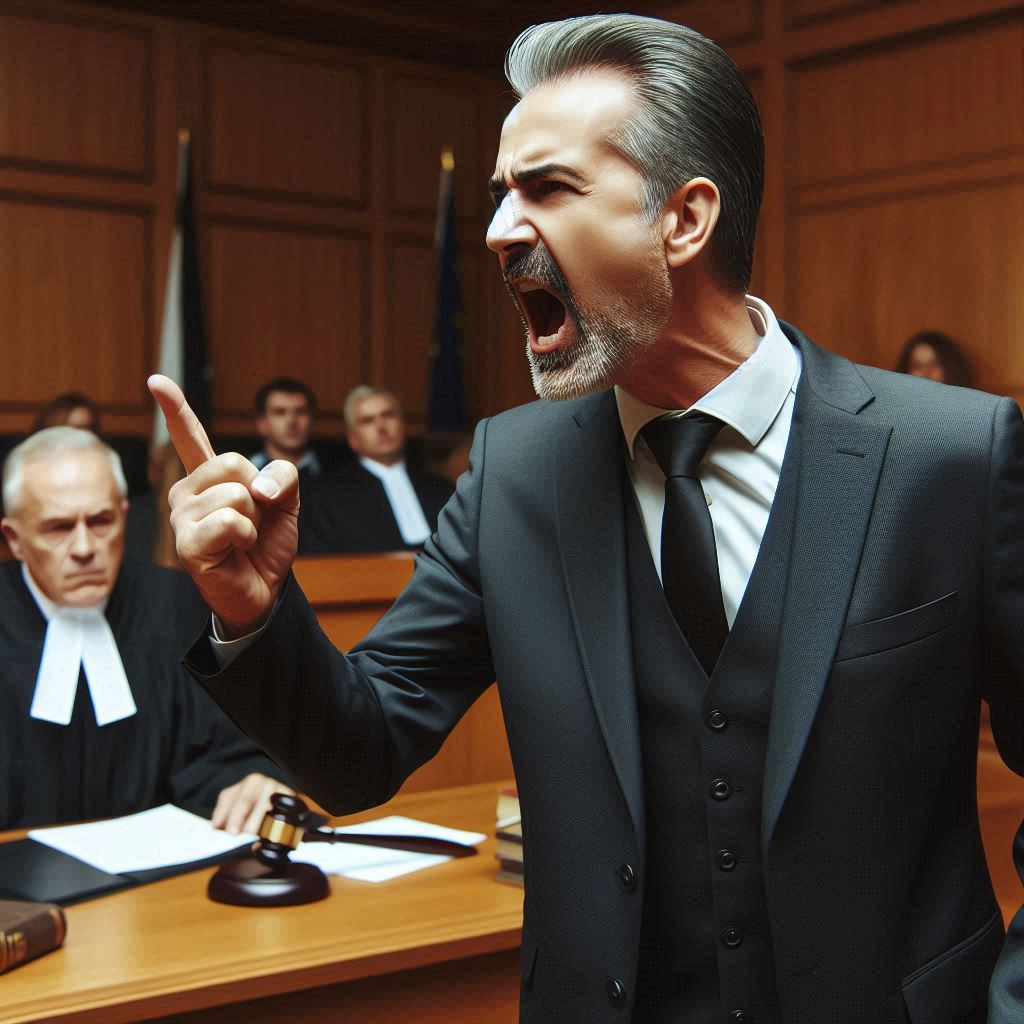Introduction
Public defenders and district attorneys play crucial roles in the legal system.
Public defenders represent individuals who cannot afford private legal counsel, ensuring everyone receives a fair trial.
District attorneys, on the other hand, prosecute criminal cases on behalf of the government, seeking justice for victims and upholding the law.
Understanding the differences between these two roles is vital for comprehending how the criminal justice system functions.
This blog post will explore the responsibilities, challenges, and operations of public defender offices.
Public defenders provide legal representation to defendants who lack the means to hire private attorneys.
They ensure that all individuals, regardless of financial status, receive a fair trial and proper legal defense.
Public defenders handle a wide range of cases, from minor offenses to serious felonies.
Their duties include interviewing clients, investigating cases, negotiating plea deals, and representing clients in court.
They must be well-versed in criminal law and possess excellent advocacy skills to defend their clients effectively.
Challenges Faced by Public Defenders
Public defenders often face significant challenges in their work.
One major issue is the overwhelming caseloads they must manage.
Due to limited resources and high demand for their services, public defenders frequently handle numerous cases simultaneously.
This heavy workload can lead to burnout and affect the quality of representation they provide.
Additionally, public defenders may encounter resistance from prosecutors and judges, making it difficult to secure favorable outcomes for their clients.
Despite these obstacles, public defenders remain dedicated to upholding the rights of the accused.
Public defender offices are typically funded by the government, either at the state or local level.
Attorneys, investigators, paralegals, and support personnel staff these offices.
They work together to provide comprehensive legal services.
When the court arrests an individual who can’t afford an attorney, it appoints a public defender to represent them.
The public defender then conducts a thorough investigation, gathers evidence, and develops a defense strategy.
Throughout the legal process, public defenders work closely with their clients, keeping them informed and prepared for court proceedings.
Key Differences Between Public Defenders and District Attorneys
While both public defenders and district attorneys are integral to the criminal justice system, their roles are fundamentally different.
Public defenders defend the accused and ensure their constitutional rights are protected.
In contrast, district attorneys prosecute criminal cases, aiming to prove the defendant’s guilt beyond a reasonable doubt.
Public defenders operate within a framework of limited resources and high caseloads, while district attorneys typically have more extensive resources at their disposal.
These differences highlight the unique challenges and responsibilities each role entails.
In a nutshell, Understanding the operation of public defender offices sheds light on the essential role they play in the criminal justice system.
Public defenders work tirelessly to ensure that everyone, regardless of financial status, receives a fair trial and legal representation.
Despite facing significant challenges, they remain committed to upholding justice and protecting the rights of the accused.
By recognizing the key differences between public defenders and district attorneys, we gain a deeper appreciation for the complexities and importance of their work in the legal system.
Public Defender
Role Of A Public Defender In The Criminal Justice System
Public defenders play a crucial role in the criminal justice system by providing legal representation to individuals who cannot afford private attorneys.
- They are appointed by the court to represent defendants in criminal cases, ensuring their constitutional right to a fair trial.
- Public defenders handle a diverse range of cases, from minor misdemeanors to serious felonies.
- They work closely with clients to gather evidence, prepare defense strategies, and advocate on their behalf in court.
- Public defenders also negotiate plea deals, conduct legal research, and argue motions in front of judges.
How Public Defenders Are Appointed To Represent Individuals Who Cannot Afford Private Legal Representation
One of the key responsibilities of a public defender is to provide zealous representation for their clients, regardless of the nature of the charges against them.
- They must diligently investigate the case, interview witnesses, and challenge the prosecution’s evidence.
- Public defenders must ensure that their clients’ rights are protected throughout the legal process.
- They often work long hours, juggling multiple cases to ensure each client receives proper attention and defense.
- Public defenders are committed to upholding ethical standards and advocating for justice in the face of adversity.
In review, public defenders play a vital role in upholding the fundamental principles of fairness and justice in the criminal justice system.
District Attorney
Role Of A District Attorney As A Prosecutor In Criminal Cases
As a district attorney, your role is crucial in criminal cases.
You are responsible for representing the government and prosecuting individuals accused of crimes.
- You have the duty to gather evidence, interview witnesses, and build a strong case against the defendant.
- District attorneys work closely with law enforcement agencies to ensure a comprehensive investigation is conducted.
- They assess the strength of the evidence to determine if charges should be filed against the accused.
- Once a decision is made to prosecute a case, the district attorney presents the evidence in court and argues for the defendant’s guilt.
- They are the legal voice of the state or federal government in criminal proceedings, seeking justice on behalf of society.
Power and Discretion
District attorneys have significant power and discretion in determining which cases to prosecute.
This authority comes with a great deal of responsibility.
- They must consider the evidence, the impact on victims, the resources available, and the likelihood of a successful prosecution.
- Decisions to prosecute are based on the strength of the evidence and the likelihood of obtaining a conviction in court.
- District attorneys also have the power to offer plea bargains or negotiate settlements with defendants to resolve cases outside of trial.
- They are entrusted with the duty to uphold the law and pursue justice while ensuring the rights of the accused are protected.
- Ultimately, district attorneys play a critical role in the criminal justice system by seeking justice for victims and holding offenders accountable.
Read: Prosecutor Salaries: What to Expect in This Career
Key Differences in Roles
Comparing Roles of Public Defenders and District Attorneys
Public defenders and district attorneys play pivotal roles in the courtroom.
Public defenders represent individuals who cannot afford private legal counsel.
They ensure that their clients receive fair trials and uphold their constitutional rights.
District attorneys, on the other hand, represent the state.
Their primary role is to prosecute criminal cases and seek justice on behalf of the community.
While public defenders focus on defending the accused, district attorneys work to prove the guilt of the defendant.
This fundamental difference shapes their approach and responsibilities in the courtroom.
Advocating for Clients’ Rights
Public defenders advocate tirelessly for their clients’ rights.
They provide legal representation to individuals facing criminal charges, regardless of the charges’ severity.
Their primary responsibility is to ensure their clients receive a fair trial.
Public defenders scrutinize evidence, cross-examine witnesses, and develop defense strategies.
They often handle large caseloads, yet remain committed to each client’s case.
Their dedication to protecting their clients’ rights is crucial in maintaining the integrity of the justice system.
Public defenders strive to mitigate potential penalties, negotiate plea deals, and seek alternative sentences when possible.
District attorneys seek justice on behalf of the state.
They represent the government in prosecuting criminal cases and ensuring that offenders are held accountable.
Their duties include reviewing evidence, presenting the case in court, and recommending appropriate sentences.
District attorneys work closely with law enforcement to build strong cases against defendants.
Their goal is to achieve a just outcome for the community, which sometimes involves negotiating plea bargains to expedite the legal process.
They must balance the public’s interests with the accused’s rights.
This ensures justice is served fairly and impartially.
The Adversarial Relationship
The relationship between public defenders and district attorneys is inherently adversarial.
In the courtroom, public defenders and district attorneys often find themselves on opposing sides.
Public defenders challenge the prosecution’s evidence and arguments to defend their clients.
District attorneys counter these efforts by presenting compelling cases to secure convictions.
This adversarial dynamic ensures that both sides are vigorously represented, contributing to the fairness of the legal process.
The tension between defending individual rights and upholding public safety underscores the importance of both roles in the justice system.
Public defenders and district attorneys serve crucial yet contrasting roles in the courtroom.
Public defenders advocate for the accused, ensuring their rights are protected throughout the legal process.
District attorneys represent the state, seeking justice for the community by prosecuting criminal cases.
Their adversarial relationship highlights the balance necessary for a fair and just legal system.
Despite their differences, both public defenders and district attorneys are essential in upholding the principles of justice and maintaining public confidence in the legal system.
Their dedication and commitment to their respective roles ensure that justice is both pursued and defended.
Read: Continuing Education for Prosecutors: Courses and Tips
Key Responsibilities
Public Defender
- Conduct thorough investigations to gather evidence for the defense of clients.
- Negotiate plea deals with prosecutors to secure the best possible outcome for clients.
- Represent clients in court proceedings, including trials, hearings, and other legal appearances.
- Ensure that clients’ constitutional rights are protected throughout the legal process.
- Advocate for fair and just outcomes for clients, regardless of their financial means.
- Work closely with clients to understand their needs and build strong defense strategies.
- Collaborate with other members of the defense team, such as investigators and paralegals.
District Attorney
- Prepare cases for trial by collecting and organizing evidence, witness testimonies, and other materials.
- Present evidence in court to prove the guilt of the accused and seek convictions in criminal cases.
- Work with law enforcement agencies to investigate crimes and gather information for prosecution.
- Evaluate cases to determine the appropriate charges to file based on the evidence and legal statutes.
- Negotiate plea agreements with defense attorneys to resolve cases without going to trial.
- Attend hearings, trials, and other legal proceedings to argue the prosecution’s case to the judge or jury.
- Collaborate with victim advocates to support victims of crimes and ensure their voices are heard in court.
In summary, public defenders are responsible for providing legal representation to individuals who cannot afford a private attorney, ensuring their rights are protected, and advocating for fair outcomes in court.
On the other hand, district attorneys are tasked with prosecuting criminal cases on behalf of the state, seeking justice for victims, and upholding the law.
Both roles play crucial parts in the criminal justice system, albeit on opposite sides of the courtroom.
Read: Role of Prosecutors in the Juvenile Justice System

Impact on the Criminal Justice System
Having both public defenders and district attorneys in the criminal justice system is crucial for ensuring fairness and upholding the law. Here are some key points highlighting their importance:
Importance of Public Defenders
- Public defenders ensure that individuals have access to legal representation, regardless of their financial situation.
- They help protect the constitutional rights of the accused and ensure that they receive a fair trial.
- Without public defenders, many individuals, especially those from disadvantaged backgrounds, would not have the means to defend themselves in court.
- Public defenders play a critical role in balancing the scales of justice and providing a voice to those who might otherwise be overlooked or ignored.
- Their presence in the criminal justice system is essential for promoting equity and ensuring that justice is served for all.
Role of District Attorneys
- District attorneys are responsible for representing the government in criminal cases and prosecuting offenders.
- They play a vital role in seeking justice for victims and holding individuals accountable for their actions.
- District attorneys work to uphold the law and ensure that criminal offenders are brought to justice through the legal system.
- They work closely with law enforcement agencies to build cases against accused individuals and present evidence in court.
- District attorneys are essential for maintaining law and order within society and promoting public safety.
In fact, the presence of both public defenders and district attorneys in the criminal justice system is essential for a fair and functioning legal system.
Public defenders ensure that individuals receive a fair trial and legal representation, while district attorneys uphold the law and prosecute criminal offenders.
They maintain balance and ensure justice for all parties involved.
Read: Prosecutor Work-Life Balance: Managing Stress
Challenges Faced
Public defenders and district attorneys hold crucial roles in the criminal justice system.
While both aim to serve justice, their responsibilities and challenges significantly differ.
This blog section explores the common challenges faced by public defenders and district attorneys.
Public defenders often manage an overwhelming number of cases.
Due to the high demand for their services, they handle many clients simultaneously.
This workload can lead to burnout and affect the quality of representation provided to each client.
Public defenders frequently work with limited resources.
Unlike private attorneys, they lack access to extensive legal research tools, expert witnesses, and investigative services.
This limitation hampers their ability to build strong defenses for their clients.
Inadequate funding remains a significant issue for public defenders.
Many public defender offices operate on tight budgets, limiting their ability to hire additional staff or invest in necessary resources.
This financial constraint further strains their capacity to deliver effective legal representation.
Challenges Faced by District Attorneys
District attorneys face the challenge of maintaining impartiality.
They must ensure justice is served fairly, regardless of public opinion or political pressure.
Balancing their duty to prosecute crimes and uphold justice can be difficult, especially in high-profile cases.
High-profile cases bring intense scrutiny and pressure.
District attorneys must navigate media attention, public expectations, and the potential impact on their careers.
This added pressure can affect their decision-making and overall case strategy.
District attorneys must balance the pursuit of justice with public interest.
They face the challenge of prosecuting crimes effectively while considering the broader impact on the community.
This balance requires careful judgment and ethical decision-making to ensure fair outcomes for all parties involved.
Public defenders and district attorneys encounter distinct challenges in their roles.
Public defenders grapple with heavy caseloads, limited resources, and inadequate funding.
These factors can hinder their ability to provide effective representation to their clients.
On the other hand, district attorneys must maintain impartiality, handle high-profile cases, and balance justice with public interest.
Addressing these challenges requires careful judgment and ethical decision-making to serve justice fairly and effectively.
Despite their differences, both public defenders and district attorneys play vital roles in the criminal justice system, striving to uphold justice and protect the rights of individuals.
Transform Your Career Today
Unlock a personalized career strategy that drives real results. Get tailored advice and a roadmap designed just for you.
Start NowConclusion
Public defenders are responsible for providing legal representation to individuals who cannot afford a private attorney.
District attorneys prosecute criminal cases on behalf of the government.
Understanding the distinctions between these two roles is crucial for ensuring a balanced and fair legal process.
Public defenders serve as advocates for the accused, working to protect their rights and ensure a fair trial.
District attorneys, on the other hand, work to uphold the law and seek justice for victims of crime.
By appreciating the roles that public defenders and district attorneys play in upholding justice, we can better understand the complexities of the criminal justice system.
Both positions are vital to ensuring that justice is served and that individuals are treated fairly under the law.
It is important for society to recognize and support the work of both public defenders and district attorneys in their efforts to maintain the integrity of the legal system.
By working together, these two roles help to uphold the principles of justice and ensure that all individuals are afforded their legal rights.
[E-Books for Sale]
The Big Book of 500 High-Paying Jobs in America: Unlock Your Earning Potential
$19.99 • 500 High-Paying Jobs • 330 pages
Explore 500 high-paying jobs in America and learn how to boost your career, earn more, and achieve success!
See All 500 High-Paying Jobs of this E-Book
1001 Professions Without a Degree: High-Paying American Jobs You Can Start Now
$19.99 • 1001 Professions Without a Degree • 174 pages
Discover 1001 high-paying jobs without a degree! Unlock career tips, skills, and success strategies for just $19.99!




